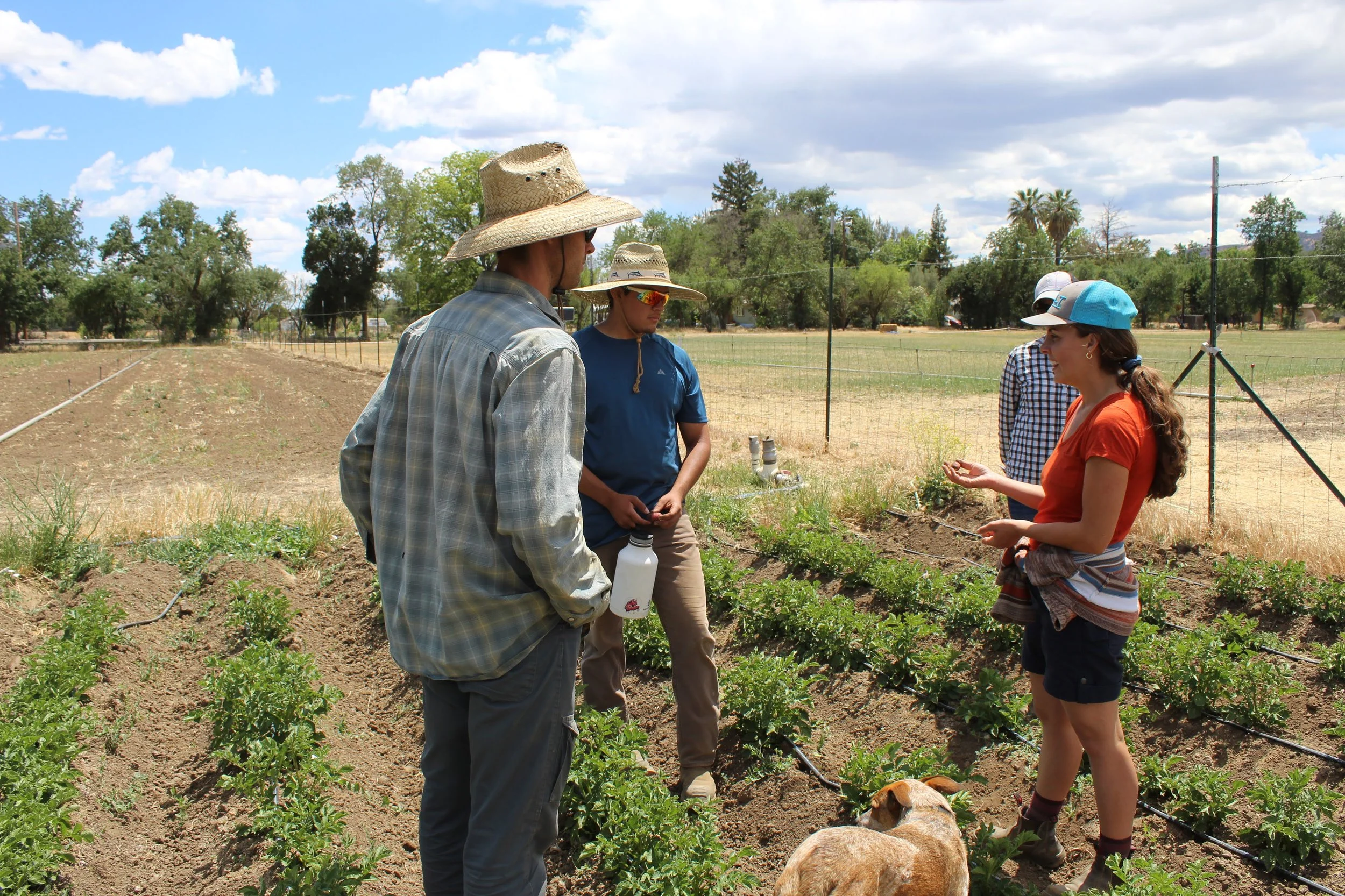Originally published in the Napa Valley Register on March 14, 2022
Owning a small business, of any kind, is no small feat. In addition to the difficulties of starting the business, there is also the daily and yearly work to make the business successful. How much do we spend? Are we making enough money to support ourselves? How do we manage risks? And perhaps the hardest question, how do we stay happy in our profession?
For all small businesses, the last two years are likely some of the toughest in more than a decade. Restaurants that had been open for 40 years have shut their doors, people are buying online rather than in local shops, employers cannot find enough people to hire, and everything needs to stop if staff comes down with COVID. All these concerns are felt by small businesses, including farms.
Owning and starting a farm is like becoming an accountant, biologist, natural disaster responder, salesperson, government bureaucrat, employee manager, CrossFit athlete, long haul driver, market analyst, and homesteader all in one (and I’m probably missing a few analogies). With the romantic idea of farming, spending time outdoors, cultivating soil, and harvesting the fruits of our labor come all the usual concerns of a small business. Compounded on this is our direct interface with biology and the climate. Farmers have pandemics to negotiate every year, albeit pandemics that affect our crops and animals rather than ourselves.
It is a lot of work for farmers to wear all these hats, and certainly impossible to do everything on time according to others’ deadlines. People often ask us if we know of such-and-such farmer grant, or why we don’t try such-and-such technique. How do we politely respond that we barely have time to sleep, let alone spend hours on a grant application or changing the trajectory of our business?
I write all this because in December our farm finished a three-year program with an incredible non-profit organization, Kitchen Table Advisors, which helps small, regenerative farmers create economically viable businesses.
Looking back on the three years of counseling we received from Kitchen Table Advisors on how to manage cash flow, how to take out a loan when to expand the business, and how to stay afloat and happy in the face of natural disasters and pandemics, I realized how crucial this support system is for us, and for all farmers.
Other organizations and programs exist to help us, but we still do not have the support and representation needed to make real change for our industry. Every year farming will become more difficult, particularly due to climate change and the rising complications of being a small business owner.
We need support systems, societal awareness and government representation that understands what farmers need to succeed. Farmers cannot do all the things all the time; we are busy enough just planning, planting and harvesting the food that keeps the country alive.
Perhaps it is time for real change that allows us to do our job, knowing that we have a support system that cares for our success. After all, if we lose all our farms, what will happen to our country?
While the main way to support a small-farm, local and more sustainable food system is by shopping directly from small farmers, there are other ways to help us succeed and make real changes in the food economy. Namely, create and support organizations that serve and ally with farmers! Be it donating to the Napa Farmers Market (one of my favorite farm allies), Kitchen Table Advisors, or one of the other groups in this space, these organizations are doing the hard work to make farms successful. We also need more government leaders and representatives that understand the realities of farming — real farming — not just at the massive, commodity-crop scale.
I encourage you all to support these organizations, get involved, create new ones, and of course, ask and listen to what help farmers need. That list is long, and the hands to help are few, but I promise we farmers will always be grateful for the help we receive. And, we will not give up easily. After all, one of the most essential qualifications for working as a farmer is being tenacious.
